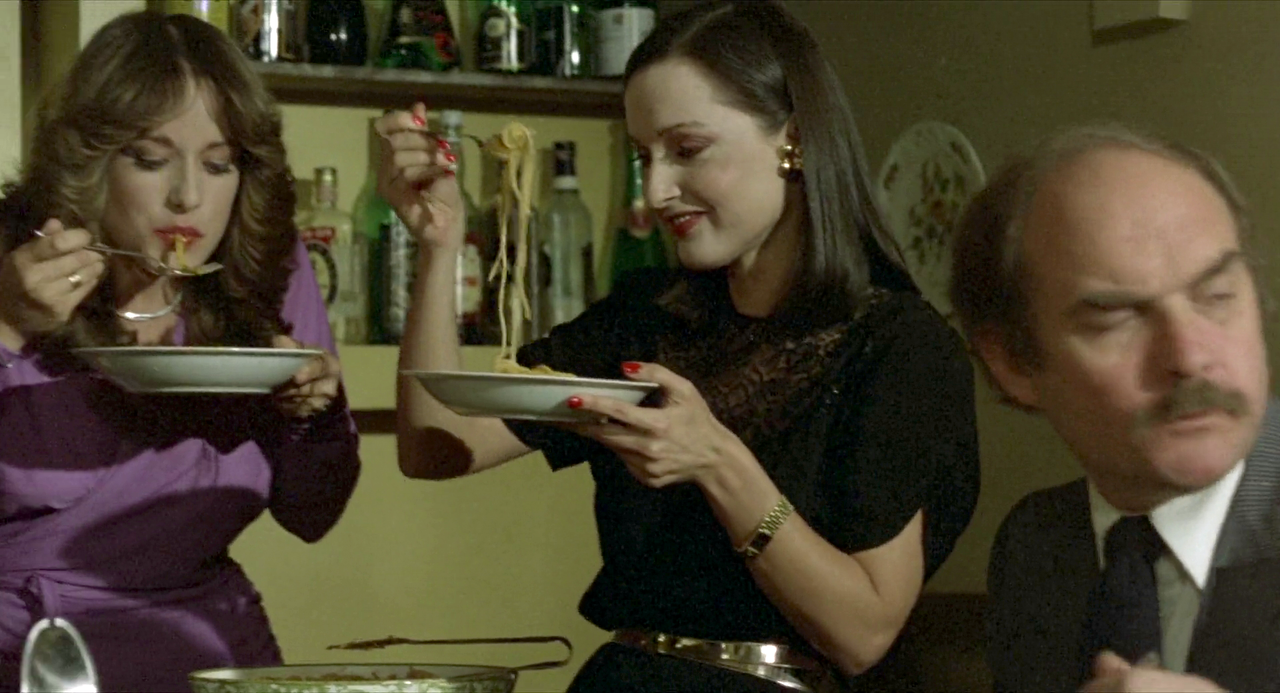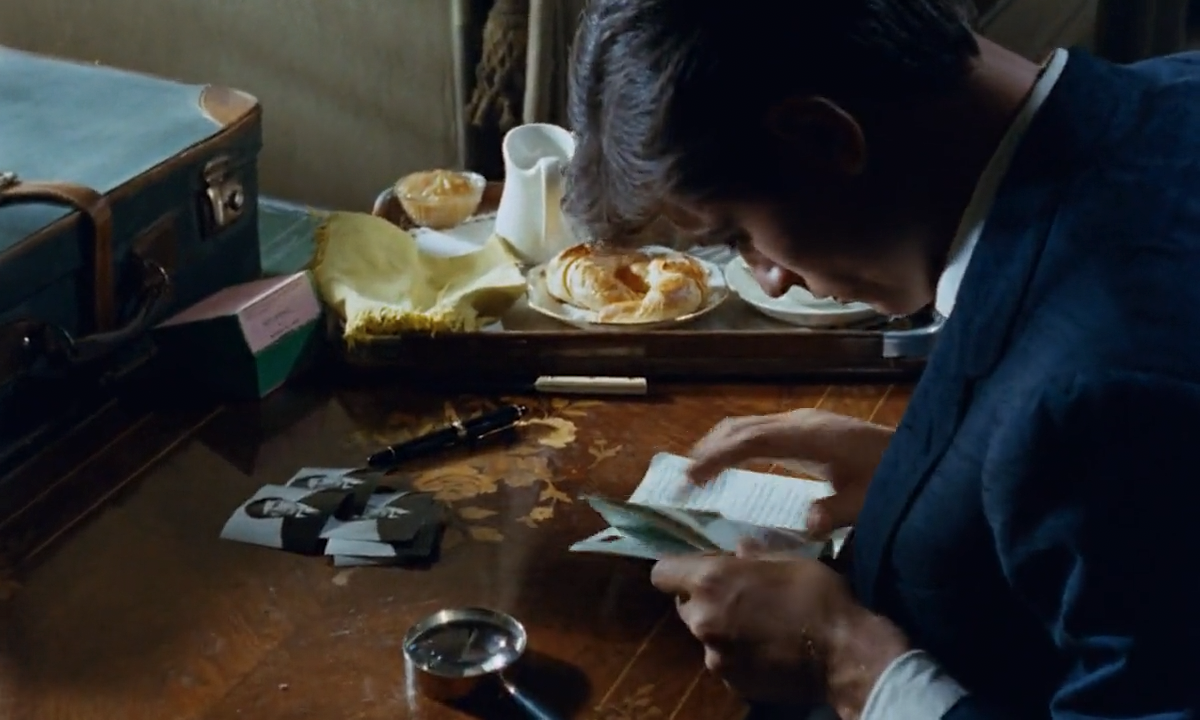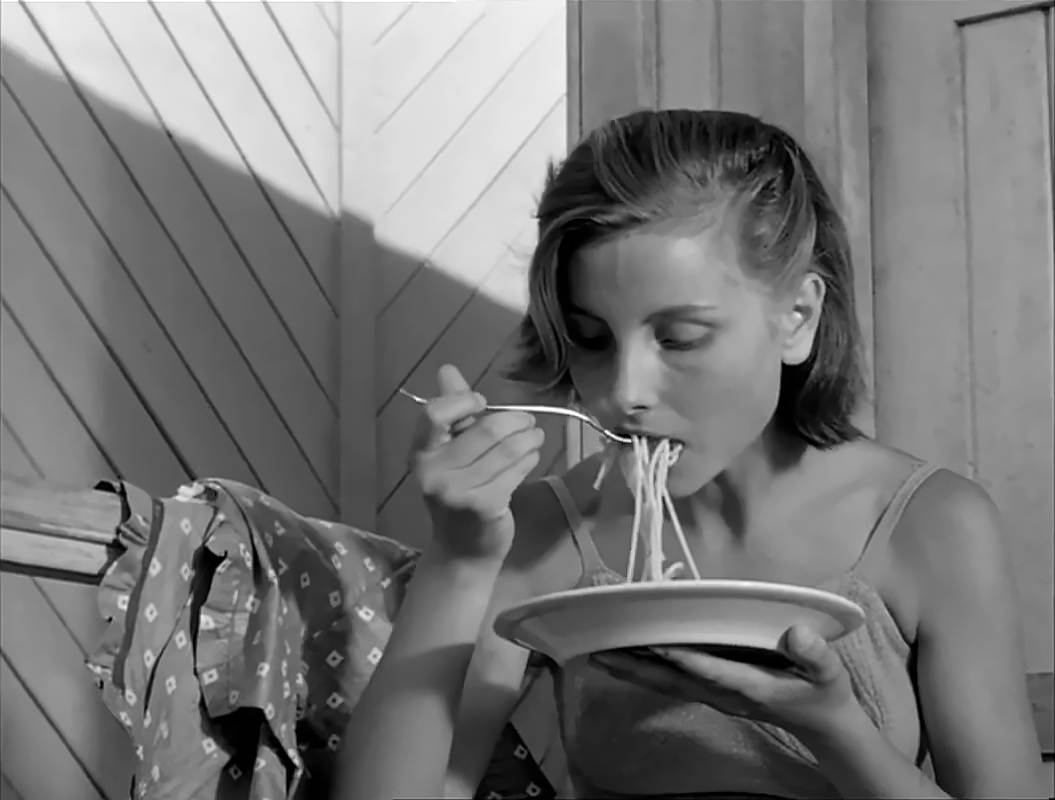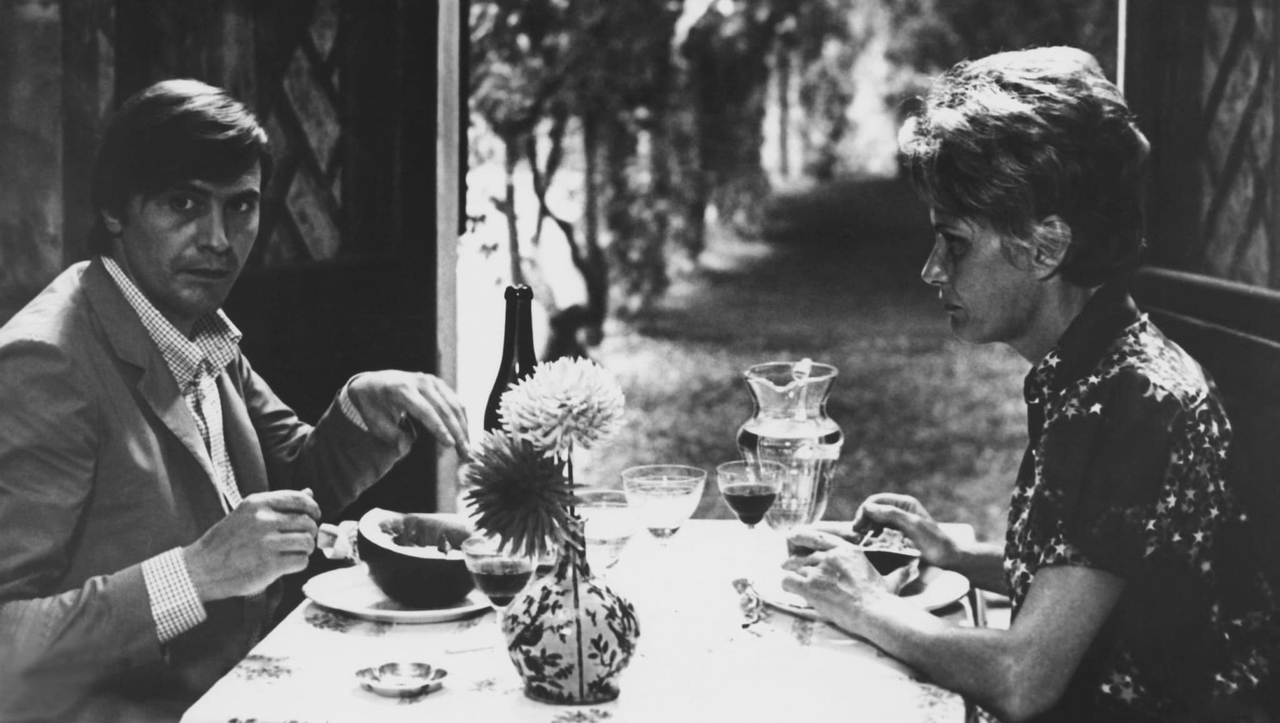Divorzio all'italiana [Divorce Italian Style] (Pietro Germi, 1961)
Nov
9

Ferdinando Cefalù (Mastroianni), all handsome and bored, at a table set with food and wine for one. DPs: Leonida Barboni & Carlo Di Palma.
Italy
“So this is the team, ey? A priest, a detective near retirement, and a young moron rookie of a cop… Terrific.”Rosso sangue [Absurd / Monster Hunter] (Joe D'Amato, 1981)
Nov
2
spaghetti

Pretending to be set somewhere in the US, people watch an American Football match on TV. Being Italian, their go-to snack is spaghetti. DP: Joe D'Amato.
– Sgt. Ben Engleman
Pensione paura [Hotel Fear] (Francesco Barilli, 1978)
Oct
18
wartime soup

Rosa (Leonora Fani) prepares soup for two of the hotel guests. DP: Gualtiero Manozzi.
La notte dei diavoli [The Night of the Devils] (Giorgio Ferroni, 1972)
Oct
12
soup

The two children (Cinzia De Carolis on the right) eat soup and giggle. Some parsley is stuck to the left child's mouth. DP: Manuel Berenguer.
La horse [Horse] (Pierre Granier-Deferre, 1970)
Aug
23
baguette

Auguste Maroilleur (Jean Gabin) at the head of a long table, covered in Good Things (wine, butter, coffee, and fresh milk). He cuts a baguette with his pocketknife. DP: Walter Wottitz.
“Matto, caldo, soldi, morto… girotondo…”Vergogna, schifosi!… [Dirty Angels] (Mauro Severino, 1969)
Aug
14
fruit

A group of people in skimpy swimwear sits on space-agey white plastic seating – Archizoom's radical Superonda (1967) – while decadently eating luxurious tropical fruit from a round table that futuristically descends from the ceiling via a steel pole. DP: Angelo Lotti.
“Why bother having money when you can spend other people's?”Plein soleil [Purple Noon] (René Clément, 1960)
Jun
15
croissants

Tom Ripley (Alain Delon) going though his passport over breakfast. Multiple passport photos, a fountain pen, and a magnifying glass take precedence over his fresh croissants. DP: Henri Decaë.
– Philippe Greenleaf
Domenica d'agosto [Sunday in August] (Luciano Emmer, 1950)
Apr
29
spaghetti di mamma

Marcella (Anna Baldini) enjoying mamma's spaghetti on the beach of Ostia. DPs: Leonida Barboni, Ubaldo Marelli & Domenico Scala.
“The madwoman has received your grace.”L'amore (Roberto Rossellini, 1948)
Apr
22
alms

Nannina (Anna Magnani) in “Il miracolo”, ascending a staircase while eating her alms. DP of this segment: Aldo Tonti; DPs “Una voce umana”: Robert Juillard & Otello Martelli.
– Nannina
“There's phrase that… 'A man is made of all men. He is equal to all and all are equal to him'.”Strategia del ragno The Spider's Stratagem] (Bernardo Bertolucci, 1970)
Apr
19
melon

Athos Magnani (Giulio Brogi) and Draifa (Alida Valli) sharing a meal. There's a carafe with water, a small vase with two flowers, wine glasses, and half a melon. Athos looks up, past us, towards something. DPs: Franco Di Giacomo & Vittorio Storaro.
– Athos Magnani